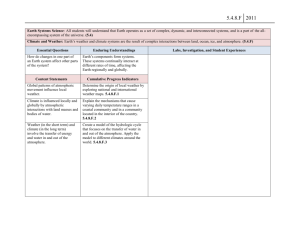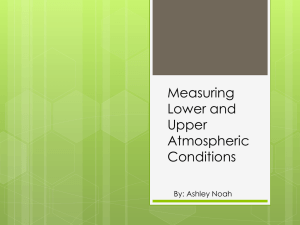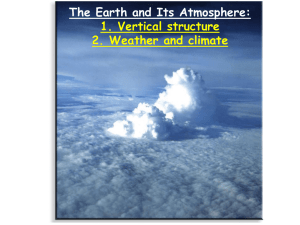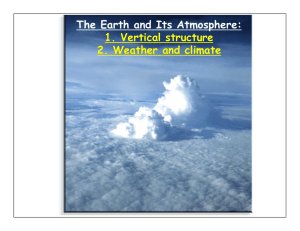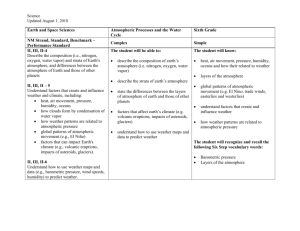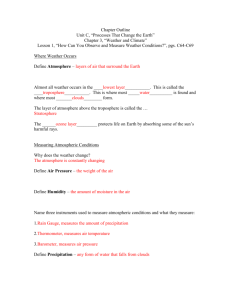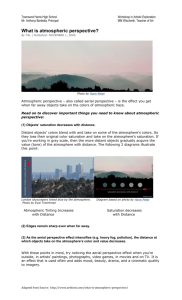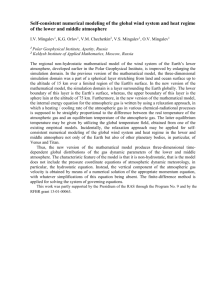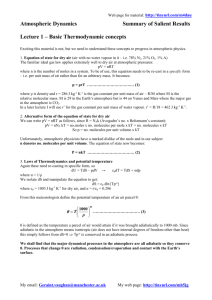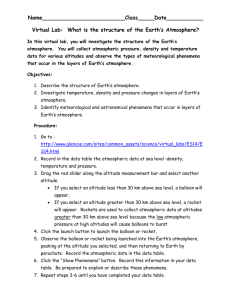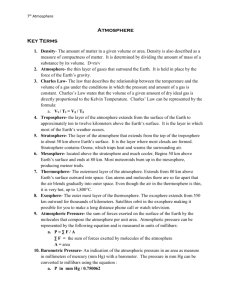COMPOSITION ND STRUCTURE OF THE ATMOSPHERE
advertisement
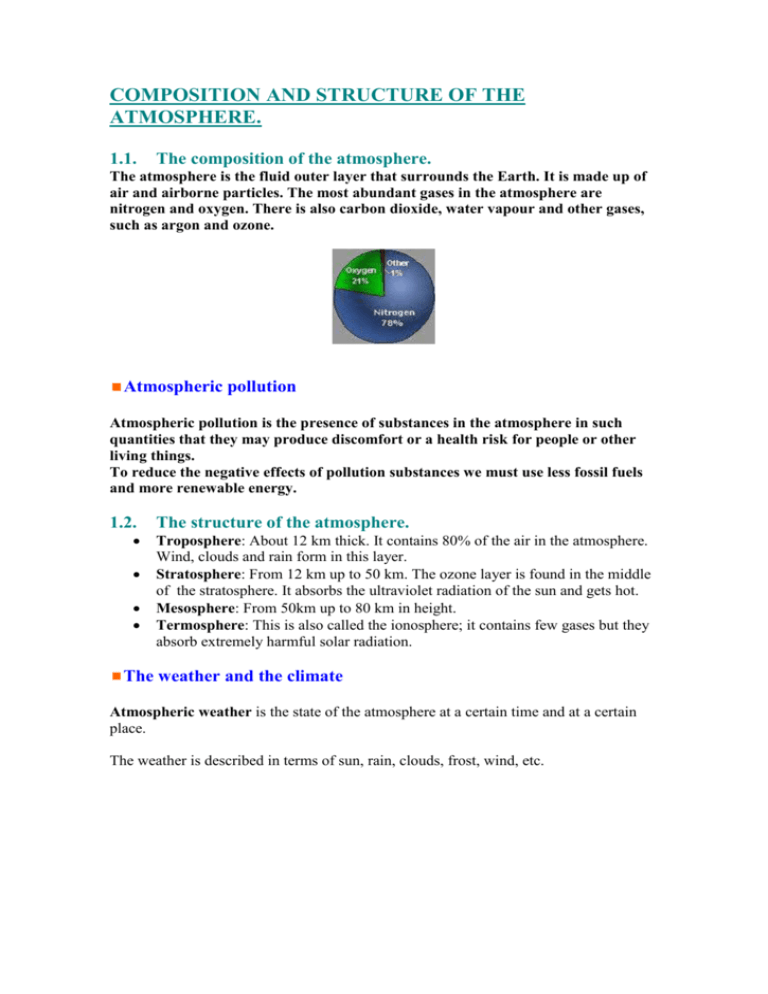
COMPOSITION AND STRUCTURE OF THE ATMOSPHERE. 1.1. The composition of the atmosphere. The atmosphere is the fluid outer layer that surrounds the Earth. It is made up of air and airborne particles. The most abundant gases in the atmosphere are nitrogen and oxygen. There is also carbon dioxide, water vapour and other gases, such as argon and ozone. Atmospheric pollution Atmospheric pollution is the presence of substances in the atmosphere in such quantities that they may produce discomfort or a health risk for people or other living things. To reduce the negative effects of pollution substances we must use less fossil fuels and more renewable energy. 1.2. The structure of the atmosphere. Troposphere: About 12 km thick. It contains 80% of the air in the atmosphere. Wind, clouds and rain form in this layer. Stratosphere: From 12 km up to 50 km. The ozone layer is found in the middle of the stratosphere. It absorbs the ultraviolet radiation of the sun and gets hot. Mesosphere: From 50km up to 80 km in height. Termosphere: This is also called the ionosphere; it contains few gases but they absorb extremely harmful solar radiation. The weather and the climate Atmospheric weather is the state of the atmosphere at a certain time and at a certain place. The weather is described in terms of sun, rain, clouds, frost, wind, etc. Meteorological photo The climate is a set of meteorological phenomena which characterise a certain region for long period of time. It is defined by stablishing the average of both temperature and precipitations throughout the year or over several years. Meteorological instruments are used to measure atmospheric phenomena. You can see the most important ones in photos. Barometer Thermometer Anemometer Pluviometer Hygrometer Weather vane Activities 1. Complete the chart with the names of the atmospheric layer and the most important phenomena that occur in them: 2. In which layer of the atmosphere do meteorological phenomena such as rain and clouds occur? 3. Copy and complete the sentence: Atmospheric air is made up of 78% of ……. and 21% of ……. and other gases such as ……and…… 4.Complete the sentences with the next words chosing the appropriate one in for each case: temperature, humidity, wind, direction, rainfall and preassure. A thermometer measures ……….. A barometer measures ………. A hygrometer measures atmospheric ……. A pluviometer measures the amount of …….. per square metre. A weather vane shows the …….. the wind is coming from. An anemometer measures …… speed.
